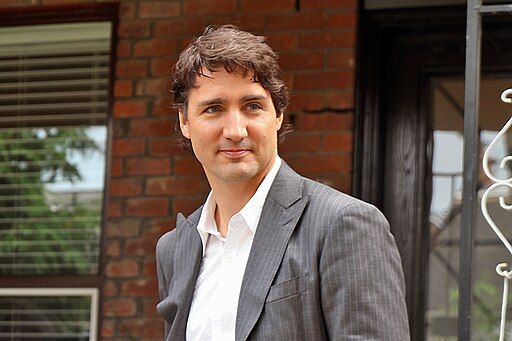As byelections loom in LaSalle—Emard—Verdun and Elmwood—Transcona, the Trudeau Liberals confront a pivotal moment that could reshape their political trajectory
The Trudeau Liberal government is bracing for crucial byelections in LaSalle—Emard—Verdun, Quebec, and Elmwood—Transcona, Manitoba, set for September 16, 2024. These contests are not merely routine elections; they carry significant implications for the party’s future, particularly in the wake of a surprising loss in Toronto—St. Paul’s, a traditionally strong Liberal seat.
In LaSalle—Emard—Verdun, the stakes are particularly high. Formerly represented by David Lametti, who enjoyed a comfortable 20-point margin in the 2021 elections, the riding is now fiercely contested. A recent Mainstreet poll shows a tight race, with the Liberals at 29%, the Bloc Québécois at 26%, and the NDP at 25%. The controversy surrounding the appointment of Laura Palestini as the Liberal candidate without a nomination contest has stirred discontent within the party ranks, adding to the pressure. Trudeau’s ability to secure a win here is seen as a referendum on his leadership, especially given the riding’s location in Quebec, his home province.
In Manitoba, Elmwood—Transcona is another battleground where the NDP has long held sway, primarily under the Blaikie family. However, the Conservatives, led by Pierre Poilievre, are aggressively challenging this NDP stronghold. Poilievre recently rallied 1,000 supporters in the area, framing the byelection as a critical decision point on the government’s carbon tax policies and its agreement with the NDP. The Conservative candidate, Colin Reynolds, an electrician and union member, aims to appeal to blue-collar voters, positioning the Tories as the party of working people.
The NDP, represented by Leila Dance, the executive director of a small business association, is also vying to retain its foothold, while the Liberals are fielding union leader Ian MacIntyre. The byelections are viewed as a crucial test of the NDP’s ability to defend its territory against a growing Conservative influence.
These byelections are more than just local contests; they are a litmus test for the national political climate. The outcomes will not only impact the leadership of Prime Minister Justin Trudeau but could also signal broader shifts in Canadian politics, particularly as the country heads towards the 2025 federal election.
Analysis:
Political Perspective:
The upcoming byelections are a critical moment for the Trudeau Liberals. A loss in LaSalle—Emard—Verdun could be particularly damaging, signalling weakening support in a province that has historically been a stronghold for the party. Such an outcome would cast doubt on Trudeau’s leadership and could lead to calls for new leadership within the party. The controversy over the selection process for the Liberal candidate in this riding further complicates matters, as it may alienate local supporters and party members.
The NDP, while defending its seat in Elmwood—Transcona, faces a significant challenge from the Conservatives. The Tories, under Pierre Poilievre, are capitalizing on discontent with the Liberal government’s policies, particularly the carbon tax. The Conservatives’ strategy of framing the byelection as a mini-referendum on the carbon tax is a calculated move to galvanize voters and erode the NDP’s support base.
Social Perspective:
These byelections also highlight broader social issues, including voter engagement and the representation of various demographic groups. The presence of diverse candidates, such as Laura Palestini in Quebec and Colin Reynolds in Manitoba, reflects an attempt by the parties to appeal to different voter segments. However, the controversy over the candidate selection process in LaSalle—Emard—Verdun may lead to a perception of democratic deficits within the party, potentially discouraging voter participation.
Racial Perspective:
Racial dynamics in these byelections are subtle but significant. In Quebec, where issues of identity and language often dominate, the results could reflect broader societal attitudes towards diversity and inclusion within political representation. The NDP’s focus on defending their base in Manitoba may also touch on issues of economic disparity and representation of marginalized communities, including Indigenous and immigrant populations.
Gender Perspective:
Gender plays a crucial role in these byelections, particularly with candidates like Laura Palestini and Leila Dance. The representation of women in these key races highlights ongoing efforts to address gender imbalances in Canadian politics. However, the manner of Palestini’s selection—without a democratic process—could undermine broader gender equity efforts by suggesting that women candidates are subject to different standards or are chosen for symbolic reasons rather than merit.
Economic Perspective:
Economically, these byelections occur against a backdrop of national debates on taxation, spending, and economic recovery post-COVID-19. The Conservatives’ focus on the carbon tax issue in Manitoba underscores the party’s positioning as advocates for economic restraint and fiscal conservatism. This contrasts with the Liberals’ and NDP’s more interventionist approaches, which include support for green energy initiatives and social spending programs. The economic stakes are particularly high in regions like Quebec and Manitoba, where economic policies significantly impact voter livelihoods and local industries.
